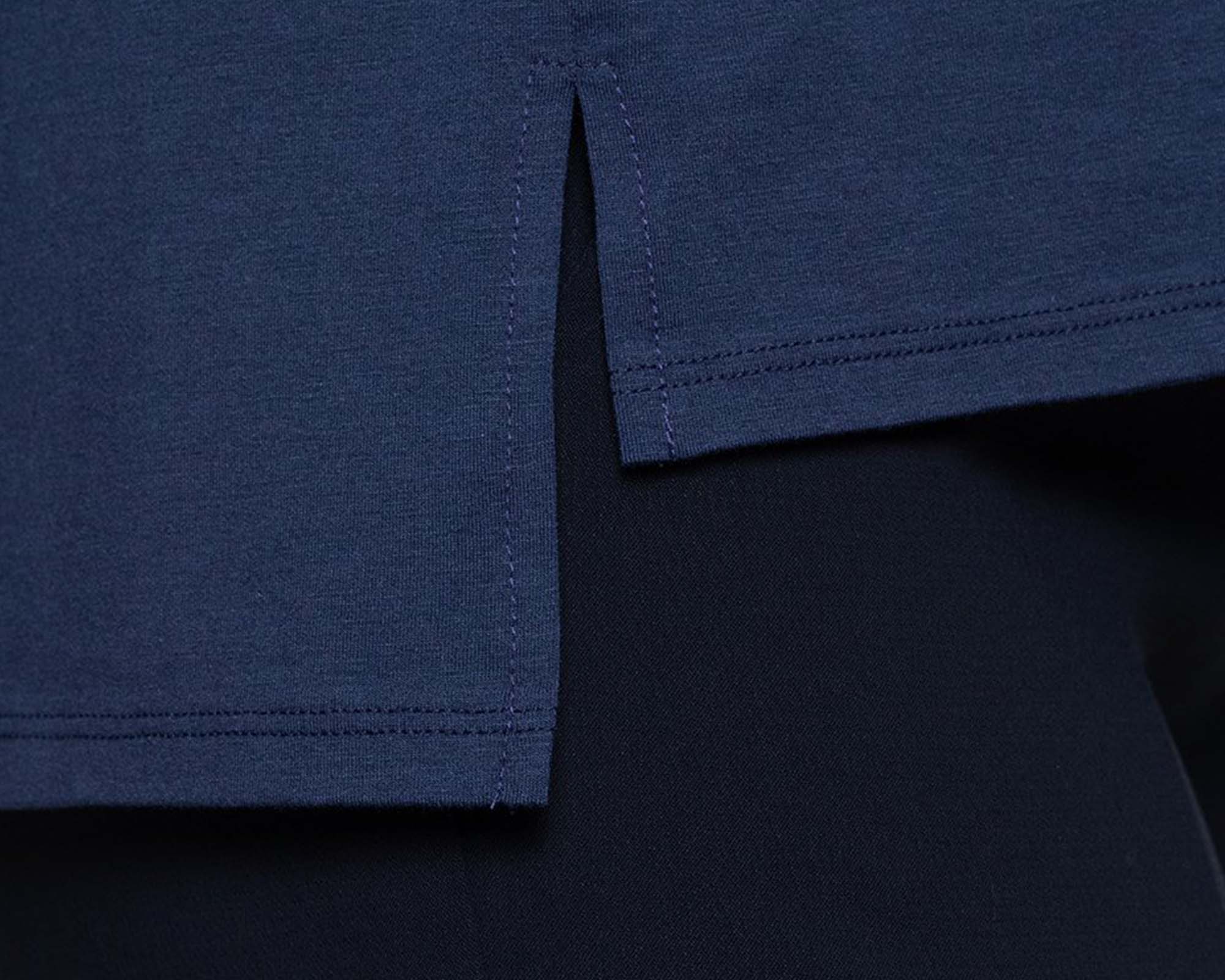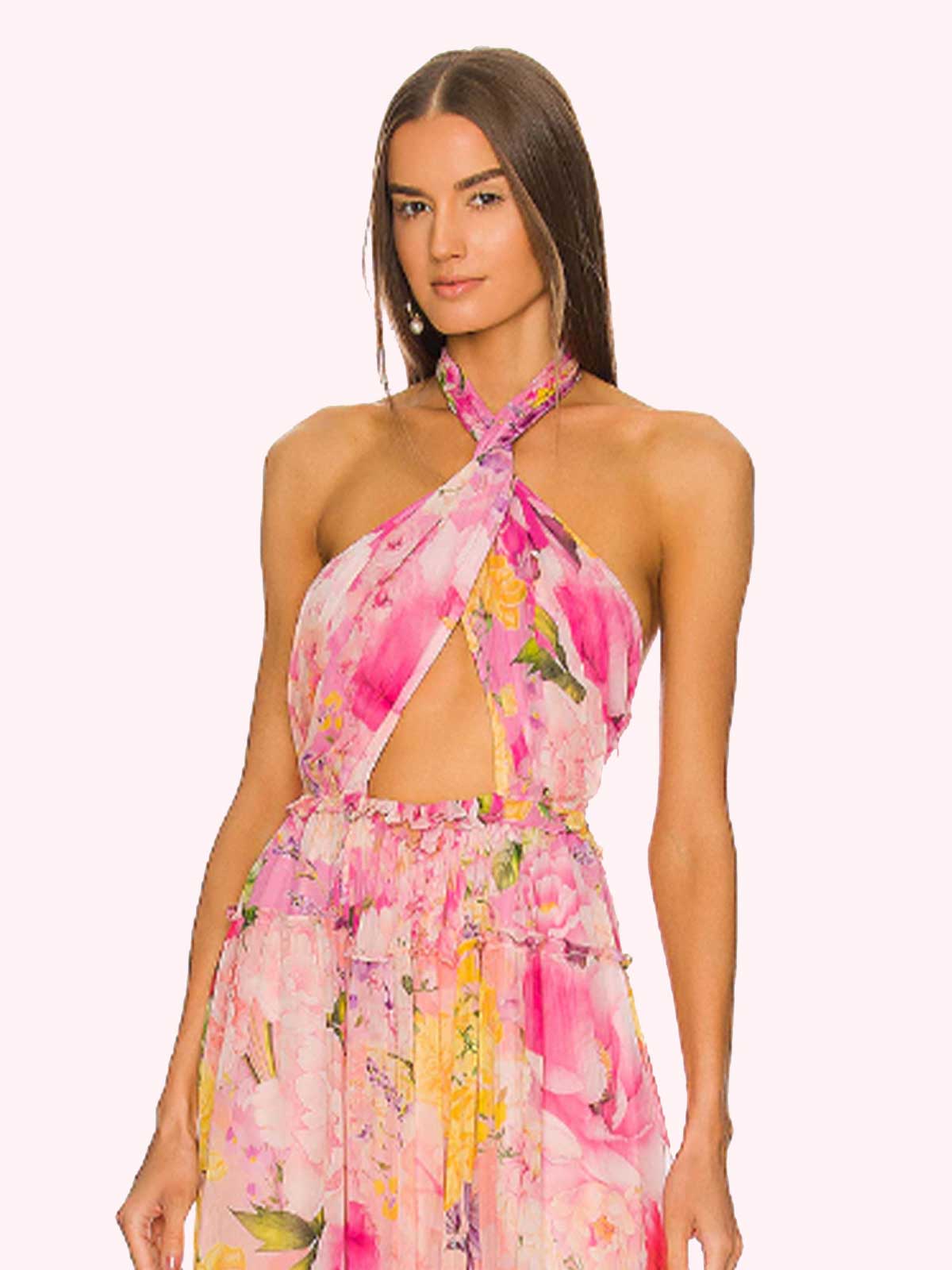Modal is a semi-synthetic fibre that has found fame in the age of activewear. Breathable and absorbent, this cotton alternative is used to manufacture underwear, pyjamas, bathrobes, bed sheets, and more. Many brands use modal in their products as an eco-friendly alternative to viscose or due to its specific characteristics—but it may not be as sustainable as many think. Read on as we answer the question: how ethical is modal?
What is modal and how is it made?
Modal is the generic name for a semi-synthetic upgrade to viscose (viscose aka rayon—here’s our take on the sustainability of viscose). Essentially modal goes through an additional process that makes it somewhat stronger than traditional rayon. Breathable and silky smooth to the touch and with impressive resistance to shrinkage and pilling, modal is around 50% more water-absorbent per unit volume than cotton. Boasting similar properties to other cellulose fibres, it’s designed to absorb the dye and stay colour-fast when washed in warm water, making it a popular choice for underwear and activewear alike. Some modal is still made in Japan, where it was originally developed in 1951, but the vast majority is now produced in China.
The manufacturing process involves spinning reconstituted cellulose from beech trees. The wood fibres are pulped into liquid form and then forced through tiny holes, creating the thread. This thread is then woven together to make the modal fabric, which may be used on its own or in a textile blend with other materials like cotton.
How does modal impact the environment?
Modal is not inherently sustainable or environmentally friendly, but it can be under certain circumstances. According to the Sewport guide on modal, “It is up to individual manufacturers to follow the manufacturing processes that will result in environmentally-friendly fabrics.” So, what issues does modal production face?
There are two main environmental issues to be aware of when it comes to modal. As modal is created from tree fibres, consumers should be aware of both the trees’ source and the effects of processing them into fibre.
Forest destruction
As with viscose, sourcing wood to turn into modal risks the destruction of native forest. Although as Sewport says, many manufacturers “only use cellulose from trees that have been grown on land that is not suitable for any other agricultural purposes” or use more sustainable types of wood like bamboo. But where the trees come from is essential. For example, the Rainforest Action Network has accused less reputable manufacturers of forest destruction in Indonesia. According to sustainable fashion commentator Summer Edwards, “modal that has been produced in Indonesia is known to be manufactured with plantation woodstock that is grown in areas of rainforest that have been clear-felled to make way for monocrop timber plantations”.
Harmful chemicals
The second issue is the chemicals. During the production of rayon fabrics, concentrations of caustic soda are used to dissolve and purify the cellulose. This step, called “xanthation”, uses the infamous neurotoxin carbon disulphide, which can then be introduced into the environment through the air or contaminated water. Not only does this harm any animals who come in contact with it, but it’s also devastating for the people who make the clothes, who can experience serious medical problems from liver damage, to blindness—even death!
Thankfully, modal manufacturing is slightly more eco-friendly than viscose, as it uses less chemicals in its production process. What’s more, many rayon manufacturers have started to use chemical scrubbers or machines to trap the chemicals before they make their way into the ecosystem, further reducing harm.
However, modal didn’t make the cut in the top three tiers of our internal fabric ranking because of these contentious issues. But not all hope is lost. One version of modal is ranked ‘third best’, putting it ahead of the most damaging fabrics like polyester and conventional cotton.
Better modal
For modal to be better, we want to be assured it was sourced from renewable forests and that the chemical processing was done at the highest standards, including minimising chemical emissions to air or water.
Today, one of the best-known producers of modal is the Austrian company Lenzing AG, which now markets its version under the name TENCEL™ Modal (previously Lenzing Modal). Note that ‘Tencel’ is often used to mean TENCEL Lyocell (a more sustainable alternative we talk about below), but that brands could now refer to lyocell OR modal fabric, so it’s worth clarifying.
TENCEL™ Modal is protected by a global certification system. Lenzing has developed environmental processes for manufacturing its modal, which are not currently commercially available to others. These less-toxic technologies allow Lenzing to have high recovery rates of process ingredients, minimising emissions and conserving resources.
The trademarked TENCEL™ Modal is harvested from PEFC or, less commonly, FSC sustainably managed beech tree plantations in Austria and surrounding European countries. Other modal fibres on the market are often less transparent and may not be harvested from renewable sources.
The environmental footprint of TENCEL™ Modal is a primarily positive one—it’s carbon-neutral, requires less land per tonne than cotton fibres, and has a water consumption level that’s ten to twenty times less than that of cotton. Many brands, therefore, see modal as an eco-friendly choice.
The catch
However, a key factor in all of this is that Lenzing does not produce ready to wear fabrics. Instead, the company sells yarns to mills and manufacturers who, in turn, make fabrics. The environmental impact involved in weaving fibres into fabrics can be significant, with conventional methods using high levels of water and chemicals.
As a consumer, it’s hard to know where the modal used in your clothes comes from unless the brand is transparent. Be sure to look out for Lenzing in the product descriptions when shopping for modal clothes.
Recent innovations
In February 2021, Lenzing unveiled pioneering TENCEL™ Modal fibre with Indigo technology to help elevate sustainability in the denim industry. Lenzing has partnered with leading supply chain partners, including denim mill Candiani Denim, a client of our friends over at Eco-Age. The new TENCEL™ branded modal fibre with Indigo technology uses a one-step spun-dyeing process to deliver indigo colour while using substantially fewer resources and was awarded the EU Ecolabel for meeting high environmental standards!
How does modal compare to other rayon fabrics?
Modal is often compared to other types of rayon, like viscose or lyocell.
Although the production for modal and viscose are similar, the resulting modal fibres are much stronger and more durable (especially when wet) but also lighter and more breathable. Conventional modal is somewhat less harmful than viscose as it produces fewer chemical emissions; as noted above, TENCEL™ Modal is better again as the fibre sources come from more sustainably managed forests and far less chemicals are emitted. But it’s far from the least harmful material going!
True lyocell (often marketed as Tencel, but look for TENCEL™ Lyocell to be sure) is more environmentally friendly since it’s made using an organic solution that replaces the sodium hydroxide used in modal production. It also uses a closed-loop solvent system, which means that no solvent is wasted or dumped into the ecosystem! Lenzing is again the primary producer of the eco-friendly alternative lyocell fabric, named TENCEL™ Lyocell, which we classify a second-tier or ‘good choice’ fabric.
So, in summary
It is essential to consider both the source materials and fibre processing and the weaving, cutting, and transportation process when thinking about the sustainability of a fabric. In addition, different countries and manufacturers apply very different environmental standards. China, for example, has a history of generally lax emissions standards, meaning fewer requirements for producers to avoid the release of harmful chemicals into waterways, impacting not only the planet but the people, too. We understand that some regions in China have pushed producers to improve their processes, and of course, some factories will have higher standards than others.
Be sure to choose brands with transparent production processes to ensure you’re making the most ethical choice. The best advice is to assume that modal is only a little more sustainable than viscose unless the brand is very clear that it is TENCEL™ Modal or specifies both that the source fibre comes from PEFC or FSC certified forests and that it is processed in a high-quality facility with high environmental standards including the capture of a high percentage of chemicals in the processing stages.
Here are some ‘Good’ and ‘Great’ rated brands using sustainably-produced modal:

























